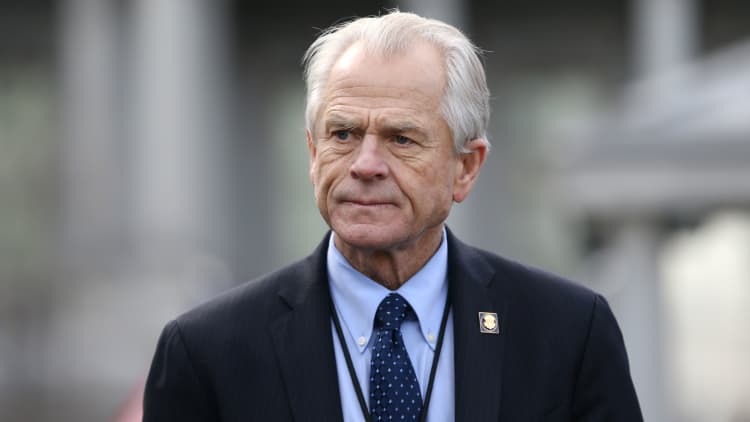White House trade advisor Peter Navarro pushed back Wednesday against the idea that the U.S. would remove tariffs on Chinese imports if the deadly coronavirus begins to weigh on China's economy.
"That's a spin that's coming right out of Wall Street, and it really, I think, it does a disservice to this whole crisis to bring that into the discussion," Navarro said on CNBC's "Closing Bell."
Navarro was responding to a question from CNBC's Carl Quintanilla, who asked whether a tariff rollback was on the table if China was abiding by the terms of the "phase one" trade deal but started to see its economy hurt by the coronavirus.
The flu-like coronavirus has now killed at least 132 people and infected more than 6,150 people worldwide, but China is the epicenter of the outbreak.
Companies in China have shut down stores, factories and closed offices as the country works to contain the spread of the virus. Some have warned of severe disruption to supply chains in China, with at least American CEO predicting the impact could last up to six months.
Navarro's comments on CNBC come hours after President Donald Trump signed into law the new version of the North American Free Trade Agreement, making Canada the final country that needs to ratify it.
The U.S. Senate approved the United States-Mexico-Canada Agreement on Jan. 16, one day after Trump formally signed a "phase one" agreement with China.
The U.S. and China have been engaging in a long-running trade war in which each side has placed billions of dollars' worth of tariffs on each other's goods.
The "phase one" deal was considered the first step in larger negotiations to reach a trade détente.
While it contained measures on issues such as intellectual property theft and Chinese market access, it did not include a whole-scale rolling back of tariffs, which segments of the business community want to see.
"We're leaving tariffs on, but I will agree to take those tariffs off if we are able to do 'phase two,'" Trump said at the time.
On the subject of removing tariffs due to the coronavirus, Navarro said, "Let's remember why the tariffs are in place."
"The tariffs are in place because China engages in massive unfair subsidies. They use their state-owned enterprises to put American companies and workers out of business," he said. "And the tariffs also ensure that we come back for phase two."



